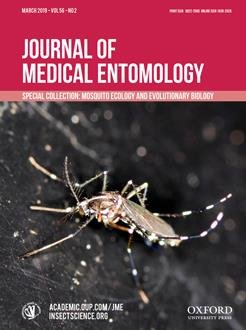The yellow fever mosquito, Aedes aegypti (Diptera: Culicidae) transmits several devastating arboviruses, including dengue, chikungunya, and Zika virus, making development of inexpensive and eco-friendly strategies for its control an urgent priority. We evaluated the lethality of 13 commonly used plant-derived edible oils against late-third instar Ae. aegypti and then tested the three most lethal oils for stage-specific differences in lethality. We also examined the effects of the most lethal (hempseed), moderately lethal (sunflower and peanut), and least lethal (olive) oils on survival to adulthood and oviposition behavior of gravid females. We hypothesized that the insecticidal activity of edible oils is a function of the content of their linoleic acid, a key fatty acid component with film-forming properties. Among the 13 oils tested, hempseed oil was the most lethal, with an LC50 of 348.25 ppm, followed by sesame (670.44 ppm) and pumpkinseed (826.91 ppm) oils. Oils with higher linoleic acid content were more lethal to larvae than those with low linoleic acid content. Furthermore, pure concentrated linoleic acid was more lethal to larvae compared to any edible oil. In comparison to early instars, late instars were more susceptible to hempseed, sunflower, peanut, and olive oils; these oils also acted as oviposition deterrents, with effective repellency ≥63%.The proportion of larvae surviving to adulthood was significantly reduced in hempseed, sunflower, peanut, and olive oil treatments relative to controls. Our results suggest that some edible plant oils have potential as effective, eco-friendly larvicides, and oviposition deterrents for controlling container-dwelling mosquitoes, especially in resource-limited settings.
How to translate text using browser tools
11 March 2019
Laboratory Evaluation of Larvicidal and Oviposition Deterrent Properties of Edible Plant Oils for Potential Management of Aedes aegypti (Diptera: Culicidae) in Drinking Water Containers
Teresia M. Njoroge,
May R. Berenbaum
ACCESS THE FULL ARTICLE
It is not available for individual sale.
This article is only available to subscribers.
It is not available for individual sale.
It is not available for individual sale.

Journal of Medical Entomology
Vol. 56 • No. 4
July 2019
Vol. 56 • No. 4
July 2019
Aedes aegypti
edible plant oil
larvicidal
linoleic acid
oviposition deterrence




